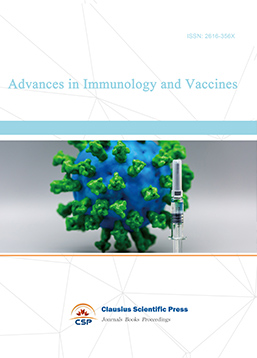The Formation Mechanism of Irrational Beliefs in Perinatal Period and Its Influence on Maternal and Infant Health
DOI: 10.23977/phpm.2025.050115 | Downloads: 5 | Views: 734
Author(s)
Danfeng Fan 1
Affiliation(s)
1 Women's Hospital, School of Medicine, Zhejiang University, Hangzhou, Zhejiang, China
Corresponding Author
Danfeng FanABSTRACT
Perinatal period is a critical stage for maternal and infant health, involving three important phases: pregnancy, childbirth, and the postpartum period. During this phase, irrational beliefs can have profound impacts on the diet, behavior, and medical decisions of pregnant women and new mothers. These beliefs often stem from traditional culture, religious beliefs, and social inheritance. This paper systematically analyzes the classification, formation mechanisms, and multidimensional impacts of irrational beliefs during the perinatal period. First, it explores the specific manifestations of irrational beliefs in pregnancy, childbirth, and the postpartum stage, as well as their potential effects on maternal and infant health, particularly in nutrition, choice of delivery methods, and mental health. Second, it examines the formation mechanisms of irrational beliefs, including cultural inheritance, social environment, cognitive distortions, and physiological factors. Finally, it proposes targeted culturally sensitive intervention strategies to enhance maternal health literacy, promote the dissemination of scientific health concepts, and reduce the negative impact of irrational beliefs on maternal and infant health. Through this study, the aim is to provide theoretical support for public health policies and clinical practice, promoting the optimization of maternal and infant health management.
KEYWORDS
Perinatal Period; Irrational Beliefs; Maternal and Child Health; Cultural Influence; Mental HealthCITE THIS PAPER
Danfeng Fan, The Formation Mechanism of Irrational Beliefs in Perinatal Period and Its Influence on Maternal and Infant Health. MEDS Public Health and Preventive Medicine (2025) Vol. 5: 100-111. DOI: http://dx.doi.org/10.23977/phpm.2025.050115.
REFERENCES
[1] Withers Mellissa, Kharazmi Nina, Lim Esther. Traditional beliefs and practices in pregnancy, childbirth and postpartum: A review of the evidence from Asian countries[J]. Midwifery, 2017, 56. 158-170. doi:10.1016/j. midw.2017.10.019.
[2] Diego-Cordero Rocío, Rivilla-Garcia Estefanía, Diaz-Jimenez Desireé, et al. The role of cultural beliefs on eating patterns and food practices among pregnant women: a systematic review[J]. Nutrition Reviews, 2021, 79(9): 945-963. doi:10.1093/nutrit/nuaa119.
[3] Higginbottom Gina, Vallianatos Helen, Shankar Janki, et al. Immigrant women's food choices in pregnancy: perspectives from women of Chinese origin in Canada[J]. Ethnicity & Health, 2017, 23(5): 521-541. doi:10.1080/13557858.2017.1281384.
[4] Bottemanne Hugo, Charron Morgane, Joly Lucie. Perinatal beliefs: Neurocognitive mechanisms and cultural specificities[J]. Gynecologie, obstetrique, fertilite & senologie, 2022, 50(7-8): 542-552. doi: 10.1016/j. gofs.2022.03.001.
[5] Moujahid Chaimae, Turman Jack, Amahdar Loubna. Common Traditions, Practices, and Beliefs Related to Safe Motherhood and Newborn Health in Morocco[J]. Healthcare, 2023, 11(5).doi:10.3390/healthcare11050769.
[6] Ahuja Alka, Duggal Mona, Liu Jane, et al. A qualitative study to understand sociocultural beliefs around perinatal and neonatal health in rural areas of Mohali, Punjab, India[J]. Frontiers in global women's health., 2023, 4. 1147762. doi:10.3389/fgwh.2023.1147762.
[7] Raman Shanti, Nicholls Rachel, Ritchie Jan, et al. How natural is the supernatural? Synthesis of the qualitative literature from low and middle income countries on cultural practices and traditional beliefs influencing the perinatal period[J]. Midwifery, 2016, 39. 87-97. doi:10.1016/j.midw.2016.05.005.
[8] Raman Shanti, Napier-Raman Sharanya, Pinzón-Segura María. Exploring cultural influences in perinatal and early childhood nutrition[J]. Revista de salud publica. Bogota, 2024, 26(3): 115569. doi:10.15446/rsap.V26n3.115569.
[9] Leach Dawn, Marino Claudia, Nikčević Ana. An evaluation of the contribution of maladaptive attitudes specific to motherhood and metacognitions in perinatal depression[J]. Psychiatry Research, 2019, 274. 159-166. doi:10.1016/j.psychres.2019.02.012.
[10] Fonseca Ana, Canavarro Maria. Cognitive correlates of women's postpartum depression risk and symptoms: the contribution of dysfunctional beliefs and negative thoughts[J]. Journal of Mental Health, 2019, 29(6): 614-622. doi:10.1080/09638237.2019.1581331.
| Downloads: | 5078 |
|---|---|
| Visits: | 332375 |
Sponsors, Associates, and Links
-
MEDS Clinical Medicine

-
Journal of Neurobiology and Genetics

-
Medical Imaging and Nuclear Medicine

-
Bacterial Genetics and Ecology

-
Transactions on Cancer

-
Journal of Biophysics and Ecology

-
Journal of Animal Science and Veterinary

-
Academic Journal of Biochemistry and Molecular Biology

-
Transactions on Cell and Developmental Biology

-
Rehabilitation Engineering & Assistive Technology

-
Orthopaedics and Sports Medicine

-
Hematology and Stem Cell

-
Journal of Intelligent Informatics and Biomedical Engineering

-
MEDS Basic Medicine

-
MEDS Stomatology

-
MEDS Chinese Medicine

-
Journal of Enzyme Engineering

-
Advances in Industrial Pharmacy and Pharmaceutical Sciences

-
Bacteriology and Microbiology

-
Advances in Physiology and Pathophysiology

-
Journal of Vision and Ophthalmology

-
Frontiers of Obstetrics and Gynecology

-
Digestive Disease and Diabetes

-
Advances in Immunology and Vaccines

-
Nanomedicine and Drug Delivery

-
Cardiology and Vascular System

-
Pediatrics and Child Health

-
Journal of Reproductive Medicine and Contraception

-
Journal of Respiratory and Lung Disease

-
Journal of Bioinformatics and Biomedicine


 Download as PDF
Download as PDF